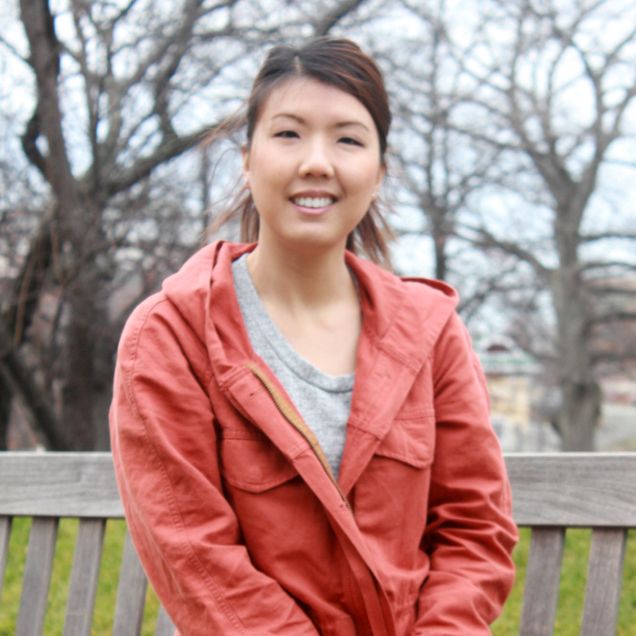Fung-Yan “Perrie” Mo (’16)
How Fung-Yan “Perrie” Mo overcomes cultural barriers surrounding mental health services in Asian communities
 It didn’t take long for Fung-Yan “Perrie” Mo (’16), a California transplant, to realize there were not enough Asian language-speaking clinicians in the field of social work. As a domestic violence advocate and case manager at Boston’s Asian Task Force Against Domestic Violence, Mo kept encountering this issue. “I was finding that I wanted to work for my clients, but it was challenging to refer them to mental health services because there aren’t enough language-proficient service providers in the area,” Mo said.
It didn’t take long for Fung-Yan “Perrie” Mo (’16), a California transplant, to realize there were not enough Asian language-speaking clinicians in the field of social work. As a domestic violence advocate and case manager at Boston’s Asian Task Force Against Domestic Violence, Mo kept encountering this issue. “I was finding that I wanted to work for my clients, but it was challenging to refer them to mental health services because there aren’t enough language-proficient service providers in the area,” Mo said.
Mo—who is fluent in Cantonese, Mandarin, and Thai—moved to Boston in 2011. She now works as a Clinical Social Worker and Asian Outpatient Specialist at Tufts Medical Center, where she provides psychosocial assessment according to the Diagnostic and Statistical Manual of Mental Disorders (DSM-5), and specializes in providing cultural sensitive care to Asian patients in the hospital. She completed her master’s degree in social work at the BU School of Social Work as well as a Family Therapy Certificate in Spring 2016.
Mo said she chose BU for her graduate degree for a number reasons, including the diversity of the faculty and the school’s expertise in urban practice and social justice. Mo told Currents she initially planned to pursue a career in law. “I wanted to be a civil rights attorney when I was in undergrad,” she said. “I worked at the Victim Witness Assistance Center of the district attorney’s office for about a year when I was completing my undergrad degree. After I graduated, I worked at a law firm for about seven months. I found it wasn’t the path that I wanted to take. Social work was a better fit for me because it is really all about the human connection.”
Mo said her field experiences provided ample opportunity to explore her interest in working with families and children. Initially, Mo served as an intensive-care coordinator at Children’s Services of Roxbury. In her second year, she was a preschool outreach clinician at the Home for Little Wanderers. She was assigned to work with preschoolers in Chinatown, as there was a need for Asian language-speaking social workers and clinicians.
“Dr. Dawn Belkin Martinez is amazing,” Mo said. “She taught me about the liberation health model, which I am able to apply and reflect on in my work constantly.” The model highlights the role of the economic, political, cultural, and historical conditions that give rise to individual and family problems. Mo added that the demand for Asian language-speaking clinicians is great in Boston right now. “A lot of survivors [I work with] are millennials,” she said. “Working with people your own age, and being able to support them in their next steps, is very rewarding.”
In the past, Mo worked as a shelter manager at the Asian Task Force Against Domestic Violence and part-time with the Boston Emergency Services Team (BEST) as a mobile crisis clinician. As a shelter manager, Mo was responsible for overseeing day-to-day emergency shelter operations. The shelter provides emergency housing for up to 20 families and children.
Since traditional group therapy comes with language barriers, Mo introduced a community-building program at the Asian Task Force to assist immigrant clients in feeling connected to a community. Activities include arts, karaoke, and cooking nights.
Mo splits her time between Tufts and Good Sheperd Community Care, where she works as a Per Diem Clinical Social Worker, providing counseling and psychotherapy for individuals and families during hospice care, facilitating advance care planning and lifespan planning, and helping clients with resources.